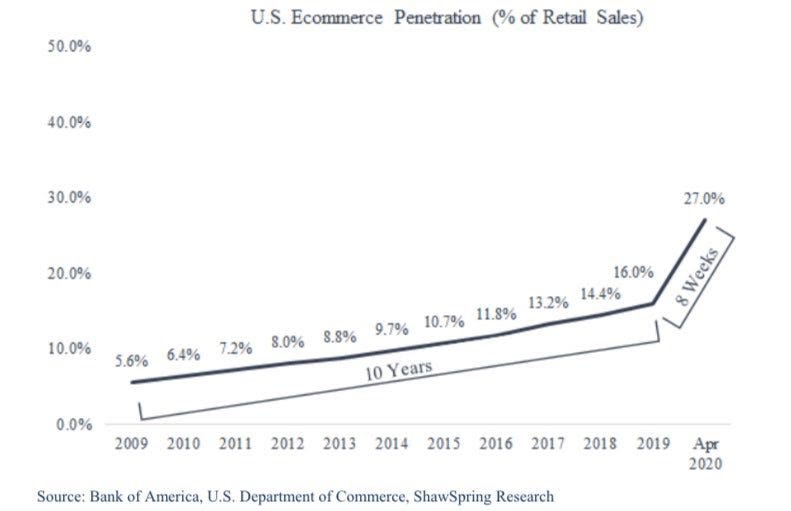Curated deep tech and AI content that humans at Radical are reading and thinking about. Sign up here to have Radical Reads delivered directly to your inbox every week.
AI News This Week
-
How to Manage People During a Crisis: Not fine. And that’s ok. A model for managing teams through crisis. (Radical Ventures)
“One of the most effective references for managing a team through a crisis is a change curve. Based on work done by researchers over the years, a change curve reflects the common psychological states one encounters in crisis. From initial shock and denial, the curve then plummets into a valley of grief, before moving on to acceptance and, as morale improves, a steady climb up the slope of exploration and creativity. These same curves can also help organizations manage restructurings or M&As. Teams, companies — even cities and countries — may see their current psychology reflected back to them on some portion of this curve.”
Radical Commentary: This is an excellent explanation of Change Curves and how to use them in a crisis by Radical’s Parasvil Patel. Parasvil joined us last year from KKR Capstone, where they used Change Curves in M&As and restructurings to assess morale and psychological wellness of employees. COVID-19 is just a different type of crisis management situation where Change Curves can be effective to assess and help improve employee morale.
-
AI & COVID-19 — Models Are Challenged by Unusual Data: Our weird behavior during the pandemic is messing with AI models (MIT Technology Review)
“Machine-learning models trained on normal behavior are showing cracks — forcing humans to step in to set them straight.”
Radical Commentary: This article cites numerous examples across many industries whereby AI models have not been able to fully adjust to major and previously unseen changes in human behaviour, in this case as a result of COVID19. Human intervention has been hailed as the stop-gap solution, as most AI models have only been trained on “normal” human behaviour.
The article discusses how intertwined our lives are with AI but that the relationship is a “delicate” co-dependence currently based on normality. To improve the resilience of this co-dependence, it is recommended that AI models are also trained to recognise and adapt to extraordinary events that humans are exposed to, such as pandemics, natural disasters and economic depressions.
The article also provides a word of caution. As we have learned during the pandemic, humans struggle to operate during extraordinary events, and therefore we shouldn’t expect AI models to provide a perfect solution either.
-
AI & Healthcare: Fei-Fei Li’s Mission to Transform Healthcare AI (Harvard Business Review)
“After ImageNet transformed AI vision, superstar Stanford computer science professor Fei-Fei Li has turned her attention to advancing healthcare. Fei-Fei Li, co-director of Stanford’s Human-Centered AI Institute, is leading the next generation of interdisciplinary technologists.
She joins Azeem Azhar to explore her journey from pioneering AI vision to her current focus on healthcare, and to discuss the need to craft AI systems that enhance human flourishing.
They also discuss:
- How AI technologies could support the isolated and elderly during the pandemic.
- Why machine values must mirror human values, and how to embed that connection.
- What allowed Li’s — and the industry’s — early naivete to the dangers of facial recognition.
- Why Li’s health technologists must work with doctors and patients, not just medical data.”
Radical Commentary: This is an excellent discussion between leading computer vision scientist Fei-Fei Li and Azeem Azhar on the evolution of AI as a discipline and Fei-Fei Li’s passion for solving key healthcare problems.
She begins by describing her exciting work on contactless sensors (depth and thermal) that are able to track temperature and behavioural changes especially for elderly populations allowing them to live a more independent life. Here, she highlights the opportunity for technology to rise up to solve the major privacy-data challenges instead of being limited by it.
She also discusses how the next phase of AI cannot ignore the consideration of the human condition. She shares an interesting example of her own time as a graduate student reading and discussing a foundational paper on base detection back in 2000. Back then, technologists like herself were so excited by the potential of the algorithms that they did not pay much attention to broader implications. To emphasize the growth in the field since that time, she discusses how students being trained at the interdisciplinary Stanford Institute for Human-Centred AI will have to be “bilingual” both in technology and human considerations. Being multilingual herself not just in discipline but by background, she discusses the positive outcomes of this kind of approach in the applications of technology.
She also dives into her own work in healthcare where she applies these principles. She talks about how weekly lab meetings involve a mix of clinicians, together with AI students. And how every student is required to shadow doctors at hospitals or clinics to truly understand the human experience.
Finally, she reinforces the ethical responsibility of innovators and the criticality of understanding human behavior so that technology can be relevant and empathetic towards the people it is solving problems for.
-
COVID Drives Online Shopping: Americans Keep Clicking to Buy, Minting New Online Shopping Winners (New York Times)
“Online sales in the United States have surged in recent weeks, after shelter-in-place measures enacted in March shuttered brick-and-mortar stores throughout the country.
While the shutdowns immediately altered how people spent their money, the patterns have continued to shift as the weeks have gone on, new data shows, shaped by waves of panic buying and even payouts of government aid. The latest bump in online spending came after the government sent out stimulus payments to tens of millions of American households beginning on April 11.
Beyond what might be temporary shifts, consumer habits appear to be changing in ways that may well endure beyond the pandemic and determine who will become the most important online players.”
Radical Commentary: This is a detailed analysis of consumer online spending trends across different sectors, how they have evolved since March of this year, and which companies have benefited the most.
US Ecommerce as a percentage of sales has risen from 16% to 27% as per the US Department of Commerce.

Overall the increase in spend in online purchases is translating into more activity up and down the supply chain. This is a trend we expect to accelerate post-COVID and which positions our AI Robotics portfolio company, Covariant.ai, for long-term growth.
-
On-Shoring Chip Foundries: Taiwan Firm to Build Chip Factory in U.S. (Wall Street Journal)
“Taiwan Semiconductor Manufacturing Co., the world’s largest contract manufacturer of silicon chips, said Friday it would spend $12 billion to build a chip factory in Arizona, as U.S. concerns grow about dependence on Asia for the critical technology.
Radical Commentary: The speculation in a series of articles this week that TSMC would open a fabrication facility in the US was confirmed on Friday after the TSMC board voted to approve the project that has the support of US Federal and State governments.
This is yet another development in the developing technology Cold War between China and the West generally, and the US in particular. We are seeing two separate technology ‘stacks’ being built, and the US government remains vocal about the need to have key elements of the technology supply chain located in the US. Chip foundries are at the core of this supply chain.
For a deep dive into the chip sector, we recommend reading this analysis by CSET at Georgetown University. It does not go into detail about startups in the space, such as our portfolio company Untether.AI, but it does a good job of explaining the key dynamics of the sector and the economics of the chip industry.
Radical Reads is edited by Ebin Tomy.

